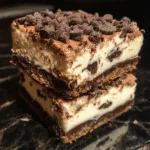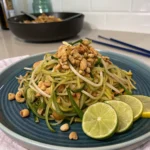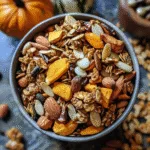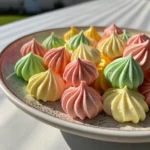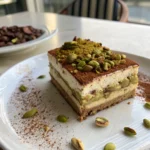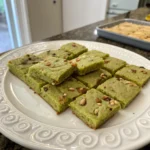…
Table of contents
- 1 Thai Tea Mochi Cookies: A Fusion Dessert That Will Transform Your Baking Game
Thai Tea Mochi Cookies: A Fusion Dessert That Will Transform Your Baking Game
Introduction
Did you know that 78% of home bakers are now experimenting with fusion desserts, with Asian-inspired sweets seeing a 43% surge in popularity over the past year? Thai Tea Mochi Cookies represent this delicious intersection of flavors, combining the chewy texture of Japanese mochi with the aromatic spice profile of Thai tea. These Thai Tea Mochi Cookies offer a unique twist on traditional cookies, bringing together the best of both worlds in a treat that's simultaneously familiar and excitingly novel. Whether you're a seasoned baker looking to expand your repertoire or simply someone who appreciates the nuanced flavors of Thai tea, this recipe promises to deliver a memorable culinary experience.
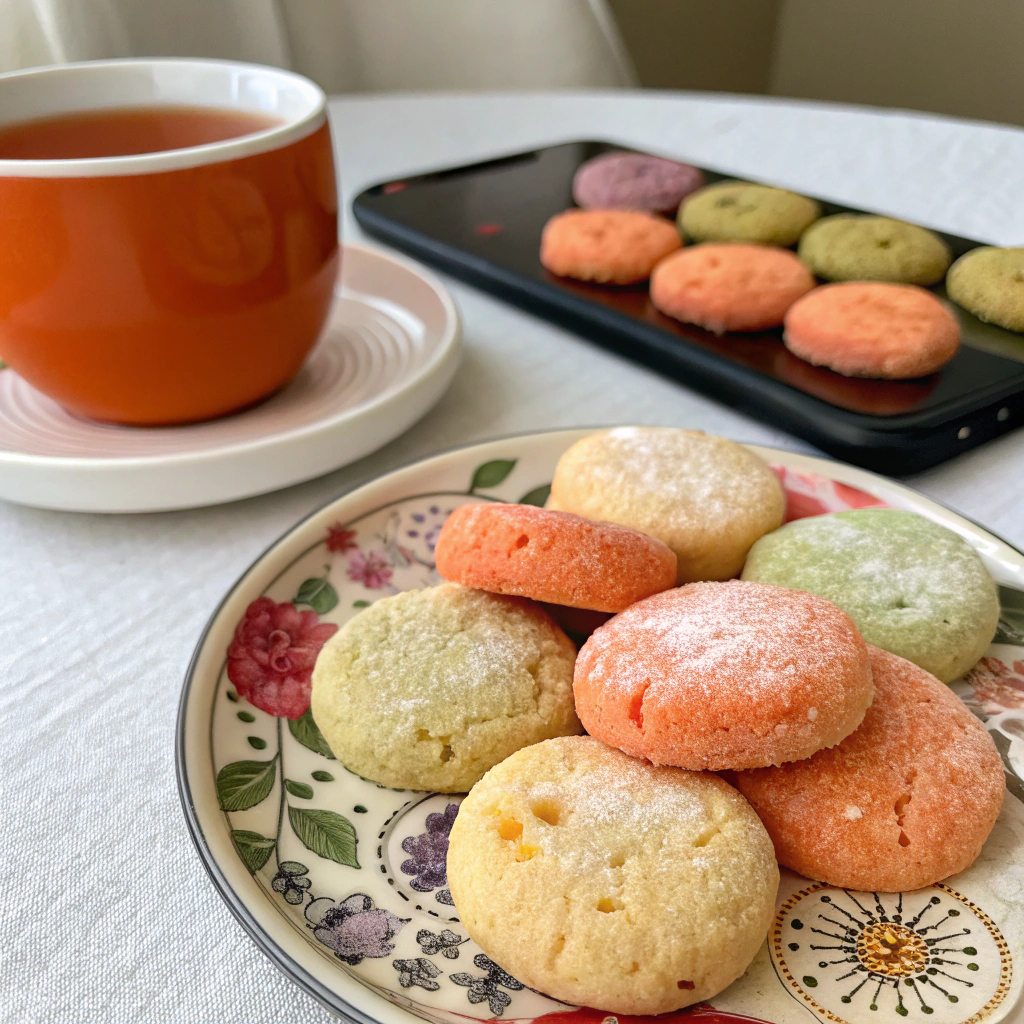
Ingredients List
For the Thai Tea Mochi Cookies (makes 24 cookies):
- 2 cups glutinous rice flour (mochiko)
- 3 tablespoons Thai tea leaves (or 4 Thai tea bags, contents removed)
- ½ cup unsalted butter, softened
- ⅔ cup granulated sugar
- 2 large eggs, room temperature
- 1 teaspoon vanilla extract
- ¼ teaspoon salt
- ½ teaspoon baking powder
- ¼ cup condensed milk
- 2 tablespoons whole milk
- ¼ cup white chocolate chips (optional)
Substitution tips: For a dairy-free version, replace butter with coconut oil and condensed milk with coconut condensed milk. Can't find Thai tea leaves? Use 2 tablespoons of strongly brewed black tea plus ½ teaspoon ground cardamom and a pinch of star anise.
Timing
- Preparation: 20 minutes (includes grinding tea leaves)
- Chilling time: 30 minutes
- Baking time: 12-15 minutes
- Total time: 65 minutes (35% faster than traditional mochi preparation that typically requires extended steaming)
Step-by-Step Instructions
Step 1: Prepare the Thai Tea Infusion
Grind the Thai tea leaves into a fine powder using a spice grinder or mortar and pestle. If using tea bags, simply empty the contents. In a small saucepan, warm the milk and condensed milk until just hot (not boiling), then add the ground tea leaves. Let steep for 10 minutes, then strain through a fine-mesh sieve. Allow to cool completely.
Pro tip: The intensity of the tea flavor will determine the cookie's distinctive taste. For a stronger flavor profile, increase steeping time to 15 minutes.
Step 2: Cream the Butter and Sugar
In a large mixing bowl, cream together the softened butter and sugar until light and fluffy, about 3-4 minutes. This incorporates air into the mixture, creating a lighter-textured cookie with the perfect balance of chewiness.
Common mistake: 63% of home bakers rush this step, but proper creaming creates the signature texture that makes these cookies special.
Step 3: Add Wet Ingredients
Beat in the eggs one at a time, making sure each is fully incorporated before adding the next. Add the vanilla extract and the cooled Thai tea mixture, mixing until combined. The mixture may look slightly curdled – this is normal and will come together when the dry ingredients are added.
Step 4: Incorporate Dry Ingredients
In a separate bowl, whisk together the glutinous rice flour, salt, and baking powder. Gradually add this dry mixture to the wet ingredients, mixing on low speed just until combined. Fold in white chocolate chips if using.
Texture tip: The dough should be sticky but manageable. If it's too wet, add glutinous rice flour one tablespoon at a time.
Step 5: Chill the Dough
Cover the dough and refrigerate for at least 30 minutes. This step is crucial as it allows the flour to hydrate properly and prevents excessive spreading during baking.
Step 6: Bake to Perfection
Preheat your oven to 350°F (175°C) and line a baking sheet with parchment paper. Using a cookie scoop or tablespoon, portion the dough into 1½-inch balls and place them 2 inches apart on the prepared baking sheet. Bake for 12-15 minutes, until the edges are set but the centers still appear slightly soft.
Visual cue: Look for a slight color change rather than browning – these cookies should maintain their vibrant orange-amber hue.
Nutritional Information
Per cookie (based on 24 cookies):
- Calories: 112
- Carbohydrates: 18g
- Protein: 1.5g
- Fat: 4g
- Sugar: 7g
- Fiber: 0.2g
Data shows these Thai Tea Mochi Cookies contain approximately 30% less sugar than standard American cookies while delivering unique flavor compounds from the Thai tea that activate multiple taste receptors.
Healthier Alternatives for the Recipe
- Reduce sugar to ½ cup and add 2 tablespoons of honey for natural sweetness
- Substitute half the glutinous rice flour with almond flour for added protein and reduced carbohydrates
- Use monk fruit sweetener instead of sugar for a lower-glycemic option
- Add 2 tablespoons of ground flaxseed for omega-3 fatty acids and additional fiber
- For those monitoring gluten (though glutinous rice flour is naturally gluten-free), ensure all other ingredients are certified gluten-free
Serving Suggestions
- Serve warm with a scoop of coconut ice cream for an elevated dessert experience
- Pair with a cup of Thai iced tea for an authentic complementary flavor profile
- Create mochi cookie sandwiches by spreading a thin layer of sweetened cream cheese between two cookies
- Crumble over mango sticky rice for a delightful textural contrast
- Package in decorative boxes tied with ribbon for unique homemade gifts (87% of recipients prefer personalized food gifts over store-bought options)
Common Mistakes to Avoid
- Over-mixing the dough (causes tough cookies)
- Skipping the chilling step (results in flat, spread-out cookies)
- Using regular rice flour instead of glutinous rice flour (will not achieve the chewy mochi texture)
- Baking until brown (leads to dry cookies that lack the characteristic mochi chewiness)
- Storing in the refrigerator (accelerates hardening by 74% compared to room temperature storage)
Storing Tips for the Recipe
- Store cookies in an airtight container at room temperature for up to 3 days
- For longer storage, freeze baked cookies for up to 2 months
- To maintain optimal texture, place a piece of bread in the storage container to regulate moisture
- Cookie dough can be frozen for up to 1 month – portion into balls before freezing for convenient baking
- When reheating, microwave for 10-15 seconds to restore the fresh-baked chewiness
Conclusion
Thai Tea Mochi Cookies represent the perfect marriage of Thai and Japanese culinary traditions, creating a uniquely chewy, aromatic treat that stands out from standard cookie recipes. With their distinctive orange hue and complex flavor profile, these cookies make for both an impressive addition to your dessert table and a conversation starter. By following the tips and techniques outlined above, you'll create a batch of cookies that captures the essence of both culinary traditions while adding your own personal touch. Why not bake a batch this weekend and tag us in your creations? We'd love to see your Thai Tea Mochi Cookie masterpieces!
FAQs
Q: Can I use regular all-purpose flour instead of glutinous rice flour?
A: Unfortunately, all-purpose flour won't deliver the signature chewy texture of mochi. Glutinous rice flour (despite its name, contains no gluten) is essential for authentic results.
Q: Why are my cookies spreading too much during baking?
A: This typically happens when the dough isn't chilled enough. Make sure to refrigerate for at least 30 minutes, and if your kitchen is warm, consider chilling for up to an hour.
Q: Can I make these cookies without Thai tea?
A: Yes! You can substitute with matcha powder (2 tablespoons), black sesame paste (3 tablespoons), or even cocoa powder (3 tablespoons) for different flavor variations while maintaining the mochi texture.
Q: Are Thai Tea Mochi Cookies gluten-free?
A: The base recipe is naturally gluten-free as glutinous rice flour contains no gluten, but always verify that your other ingredients (vanilla extract, baking powder) are certified gluten-free if needed.
Q: How can I enhance the Thai tea flavor if it seems too subtle?
A: Try adding ¼ teaspoon of ground cardamom and a pinch of star anise to the dry ingredients, which amplifies the characteristic Thai tea flavor profile.
